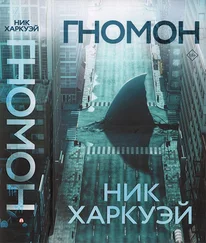And, you know. Knocking off five million in precious stones, or stealing that Picasso collection from the snob with the shiny suit, well.
You have to admit, it’s got class.
In green taxi shelters and terminals and postal depots, and in newsrooms and studios, bare whispers of smiles. You can’t be glad, of course. You can’t admire this sort of thing. It’s against the law.
But just the same.
It’s almost like the old days come again, isn’t it?
Rodney Titwhistle is dragged from a camp bed in his office to a ringing phone: London’s on fire, Rodney. It’s bloody insane. Is this your mess? Rumour says it is. Well, I don’t care, I’m taking the reserves. Yes, I bloody am, and you can bloody wake him if you think—Right, well, he knows where to find me!
With Arvin AWOL—Rodney suspects a sexual binge, though he has, of course, begun discreet inquiries—he must handle this himself. It’s not unusual to have to fight one’s corner in Whitehall. Some idiot always believes his crisis is more critical than yours, his secret darker. In Rodney Titwhistle’s experience, it never is.
This business with the banks, though, has an unsettling side. Sheamus wants the calibration drum for something—is it possible he’s just taking pot luck? A tombola approach to armed robbery and safety deposit boxes? After all, he is religious, and those people can be rather absolute about their goals. That would be embarrassing.
Asssuming Sholt was wrong. If Brother Ted had the right of it, well. It could be more serious. A lot more serious. But that’s ludicrous. Rodney Titwhistle has it on good authority that Brother Sheamus will not use the Apprehension Engine to destroy the world. He has personal assurances from Sheamus himself. He has looked into the man’s eyes.
Anyway, Sheamus doesn’t have the drum. So he can’t. If he had the drum, that would be different. If he were even now stealing it. But even then… who really destroys the world? More than sixty-five years since the atomic bomb was dropped on Japan, most of it spent with America and Soviet Russia at daggers drawn, and neither of them ever pushed the button on purpose. Pushed and unpushed it by accident a couple of times, to be fair. But not on purpose.
Although it’s a brave new world out there, with all these non-state actors. A mad person might do it.
He doesn’t stop to consider Joe Spork as the culprit. The boy’s a nobody, after all.
With the world burning outside his window, Rodney Titwhistle glances at the red phone on his desk. Time to make the first call. Number 10, probably, or the Cabinet Office. He should have details first, but he can’t wait. He’ll have to wing it a little. He reaches out.
And then he hears what must be his least favourite voice in the entire world.
“My dear Rodney, hello, hello! I let myself in, I was sure you wouldn’t mind, so many friends we have in common, of course. So many. You may remember me, I threatened to sue you, frightfully coarse of me, I do apologise… My name is Mercer Cradle, I must have said, formerly of the old established firm of Noblewhite Cradle, now of Edelweiss Feldbett of Switzerland, a rather new organisation but we do like to make our mark early, it’s part of our institutional culture which I am even now, um, well, I suppose we shall have to say ‘culturing’, which is sadly redundant, but there you are, what can you do? And specifically, Rodney, what can you do? No, please, don’t touch the phone, these gentlemen might take exception, they are from a grass-roots organisation of concerned citizens, one might almost say a sort of informal police service, or more sinisterly a mob. Oh, and this paper, Mr. Titwhistle—well, these papers, being as they are plural—these are writs and warrants and all manner of unfortunate things which I am regrettably obliged to serve upon your good self on charge of complicity in torture and so much else, do please surrender in good order and I think we’ll sit the night out here, where it’s warm and there’s sherry, and deal with the paperwork in the morning if we’re all still alive…
“Because,” Mercer Cradle adds bleakly, “you may have killed us all with your bloody ignorant prideful mess, you stupid prick, so sit there and leave the rest to someone else or I really will have your bollocks in a jar. Rodney .”
On the second floor of a rather pretty vicarage in Camden Town, Harriet Spork listens to the chorus of sirens outside her window, and hears her dead, beloved husband’s voice. The radio in her room announces that the mysterious golden bees have been seen over the Channel, they’re an hour from London at most—but her son has all that in hand. He’s come good, hasn’t he? Despite everything. It just goes to show.
For the first time in years, Harriet sleeps quietly.
Arvin Cummerbund watches Stansted Airport fade behind him. Against his massive shoulder, the beautiful Helena slumbers, dreaming of Arvin and of her native Argentina. Below him, in the city he has called home for his entire life but will not remotely miss, he can see that Joe Spork is doing what Sporks do.
Arvin grins, and lets himself breathe in, and out, and in, and out, and very soon the first-class cabin is filled with snoring as of a hibernating walrus, if walruses hibernated, which Arvin Cummerbund would be the first to aver that they do not.
When the Captain announces nervously that they’re taking a slight detour today to avoid the incoming bees, he barely shifts in his seat.
In Milton Keynes, while London basks in scandalised delight, the ground is shaking. The sleeping city turns in its warm covers and wonders muzzily whether there’s been an earthquake somewhere far away. A few late drinkers turn sharply, pull their coats about them—the wind is bitter—and hurry home.
Bletchley Park shudders from its neo-Gothic battlements to the empty, decaying Nissen huts. The doors of the long barrow are open. Wooden sleepers twist and groan.
A great black shape rolls up and out, massive body uncoiling. For a few moments it lumbers, then gathers speed. Across the long, straight stretches of the London line it becomes a vast shadow, impossibly huge and quick, belching smoke and roaring.
Behind it, the rails are scraped clean by sheer traction, gleaming silver.
Titan passing.
Sarah Ryce is the regional controller of routing for the London & Shires Freight Rail System (night shift). She works in a temperature-controlled office. She goes to work by car, because there isn’t a passenger train which serves the only house she can afford. She can’t really afford the car, either.
The man who stops to help her when she realises that her front-right tyre has been slashed is extremely polite and rather dishy in a dishevelled, older-generation sort of way. He’s so nice that she absolutely doesn’t feel threatened when he explains that she should call him Tam, and that he works for Britain’s most wronged, most wanted man. He wants her to do something very simple, and will pay her more money than she has ever seen in one place at one time to help him save the world. It’s probably because he is fixing her tyre, and in a position so absolutely compromised and vulnerable that it’s clear he does not propose to do her harm. It might be because he’s a bit like her older brother Peter, who died last year of cancer. Or it might be the feeling she has, that everyone has, that something is happening which is really important.
Читать дальше
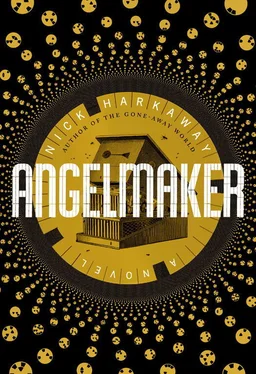





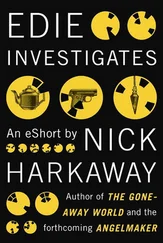

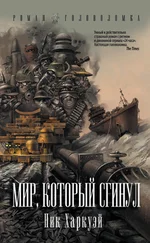

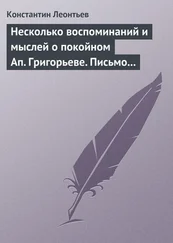

![Ник Харкуэй - Гномон [litres]](/books/400023/nik-harkuej-gnomon-litres-thumb.webp)
